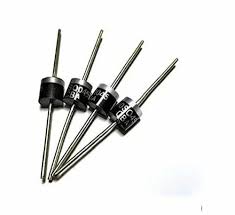Cleantech’s Clean System Solutions: Transforming India’s Battery Manufacturing Landscape

Strong 8k brings an ultra-HD IPTV experience to your living room and your pocket.
In the vibrant heart of India’s manufacturing sector, a revolution is underway, spearheaded by companies like Cleantech, which specializes in producing batteries and EV batteries. This shift is not merely about enhancing production but reimagining the entire battery manufacturing ecosystem with Clean Solutions. This article explores how Cleantech and its affiliates, such as Fintech under the Evolute umbrella, are reshaping the industry through innovative approaches and sustainable practices.
The Rise of Clean Solutions in Battery Manufacturing
As India strives to reduce its carbon footprint and transition toward renewable energy, the battery manufacturing industry plays a crucial role. According to recent studies, the demand for electric vehicles (EVs) is projected to increase by 45% annually, with battery demand set to exceed 150 GWh by 2025. The challenge lies in not just meeting this demand but doing so in an environmentally friendly manner.
Cleantech is at the forefront of this movement, implementing Clean System Solutions that prioritize sustainability while ensuring high efficiency in battery production. By investing in advanced technologies and processes, Cleantech aims to minimize waste, reduce energy consumption, and enhance the recyclability of batteries. For instance, their innovative battery recycling techniques aim to reclaim up to 90% of materials, significantly cutting down the reliance on raw material extraction.
Cleantech and Its Innovations
Cleantech is more than just a manufacturer; it’s a pioneer in integrating sustainability into its operations. With its state-of-the-art facilities located in Pune, Maharashtra, the company employs cutting-edge technology to enhance battery performance and lifespan. The focus is on developing Clean Solutions that not only meet the needs of the consumer but also align with national goals for sustainability.
The battery manufacturing process at Cleantech has seen remarkable improvements:
Energy Efficiency: Cleantech has adopted energy-efficient machinery that reduces power consumption by approximately 30% compared to traditional methods.
Water Conservation: By implementing closed-loop water systems, Cleantech has reduced water usage in production by 25%, showcasing its commitment to resource conservation.
Material Innovation: The company is exploring alternatives to traditional lithium-ion batteries, including sodium-ion batteries, which are less harmful to the environment and more abundant.
Collaborations Under Evolute
Cleantech’s journey is supported by its sister companies under Evolute. Fintech, which focuses on manufacturing finance-related electronic devices, plays a vital role by providing the necessary infrastructure and financial solutions to fuel innovation in battery technology.
This collaboration allows for streamlined operations and shared expertise, leading to more efficient production processes. Together, these companies are not just working towards profitability but also toward a greener future for India.
The Role of Government Policies and Consumer Awareness
India’s government is actively promoting clean energy initiatives. The National Electric Mobility Mission Plan (NEMMP) aims to achieve significant growth in electric vehicle production and infrastructure by 2030. Policies that support manufacturing incentives and promote research in battery technology are crucial to creating a favorable environment for companies like Cleantech.
Moreover, consumer awareness regarding environmental impact is growing. A recent survey revealed that 70% of Indian consumers are willing to pay more for eco-friendly products. This shift in consumer behavior is driving manufacturers to adopt Clean Solutions as a standard practice rather than an option. Cleantech’s commitment to sustainability resonates with this evolving consumer mindset, further solidifying its position in the market.
Challenges and the Path Ahead
While the prospects are promising, several challenges persist in transforming India’s battery manufacturing landscape. The high cost of raw materials and the need for skilled labor in advanced manufacturing techniques remain significant hurdles. However, companies like Cleantech are tackling these issues head-on.
By investing in training programs and partnerships with educational institutions, Cleantech is developing a workforce equipped with the skills necessary for innovative manufacturing processes. Furthermore, their focus on research and development is paving the way for breakthroughs that could reduce production costs while enhancing product quality.
Conclusion: A Sustainable Future
The transformation of India’s battery manufacturing landscape is a testament to the power of innovation and collaboration. Cleantech, along with Fintech. As they continue to push the boundaries of what’s possible in battery technology, the impact on the environment and the economy will be profound.
In the coming years, as more consumers and industries embrace sustainability, Cleantech’s vision of a clean and efficient battery manufacturing process will likely set the standard in India. This evolution is not just beneficial for the companies involved but for the entire nation, moving towards a cleaner and more sustainable future for all.
Note: IndiBlogHub features both user-submitted and editorial content. We do not verify third-party contributions. Read our Disclaimer and Privacy Policyfor details.







